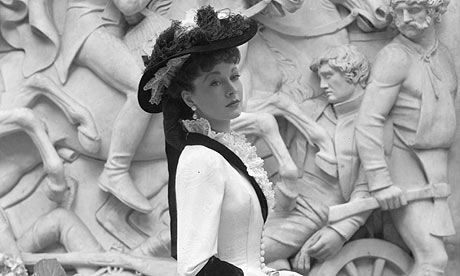
Regular readers may remember that earlier this year I was seduced by the brilliance of Anna Karenina. However – and shoot me now, aficionados – I have a bone to pick with the great man over the novel's frankly disappointing denouement. Let's face it: this is a book that readers give up weeks, months or, in the case of his original audience, years of their lives to read. So why the letdown? In short, Tolstoy, why have you done this to us?
For the vague of memory, a swift recap: at the end of a superb Part Seven, including the desperate showdown between Anna and Vronsky, she has flung herself under a train in morphine-fuelled despair. We approach Part Eight with trepidation, anticipating lengthy reaction scenes from Anna's estranged husband Karenin (now reduced to making decisions under sway of a French psychic), her mischievous brother Oblonsky, his wife and her best friend Dolly, and, of course, a rich interior monologue from Vronsky.
But no. Tolstoy elects instead to follow minor character Koznyshev's support of the Serbs and, most languorously, Levin's final religious rebirth. A handful of pages inform us of Vronsky's decision to die for the Slavic cause, because his life "is of no value" to him, although most of the remaining information relating to Anna's suicide (Karenin and the issue of Anna's child; the chronology of the tragic day itself) is glossed over in a gossipy monologue from Countess Vronksy. Yes, it's good to keep the reader on his toes, and pull the narrative in unexpected directions, but can Tolstoy really justify such fleeting reference to Anna's death? I accept the book's quest for higher meaning, but how can its author dismiss this complex story, which we have been following for 800 pages, and which he has hitherto treated with respect and care? How can he allow the last word on Anna to tumble from the pinched mouth of Vronsky's mother, who says witheringly: "Her death was the death of a bad woman, a woman without religion"?
On the basis of this novel, it could be argued that Tolstoy rejects female experience as domestic, limited, even lacking in spiritual insight, because the one woman who attempts to transgress these boundaries ends up committing suicide. Superiority of male vision and male mastery of narrative is evident. Even after his final religious breakthrough – instigated, of course, by the simple words of a male peasant – Levin still finds a reason to shout at his wife. "You ought to be ashamed of yourself", he scolds her for having a picnic in the woods with their child. Sure, this scene proves that faith is compromised by quotidian concerns, but still.
So yes, we appreciate that the novel is bigger than one woman's downfall, but, if we accept Tolstoy's didacticism, what is he saying when many characters are unfaithful, but only Anna is punished? Why does no one, not even her adulterous brother Oblonsky (who appears smilingly talking to Vronksy after his sister's death) have a line of defence for her?
And even if we embrace Levin's religious conversion, don't his conclusions feel painfully workmanlike? To commit to something higher than oneself; to live for God and goodness; to avoid selfishness (and therefore punishment like Anna, but not her brother).
One would assume that such a conclusion would have worked better in its day, but despite the serial running for four years (1873 to 1877) in The Russian Messenger, Tolstoy clashed with its editor Mikhail Katkov over the final instalment, so that the story's first complete appearance had to wait until it was published in book form.
But wait. Perhaps we are jaded by postmodern novels and nihilism. Perhaps this is an ending we should all celebrate, Levin the positive to Anna's negative. And perhaps it is a relief – and even a source of hope to fledgling writers – that this masterpiece is flawed. Or maybe I should have heeded the advice of Guardian books blog regular Suneel: "The last chapter is not very good by any means," he wrote, "It's actually quite boring and much of a let down." I agree, Suneel. But I don't feel great about it. It's like ending a stupendous five-course meal with a bowl of thin soup.

